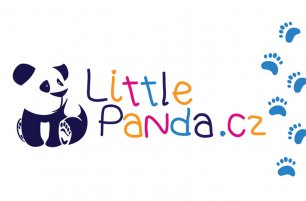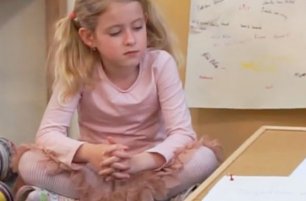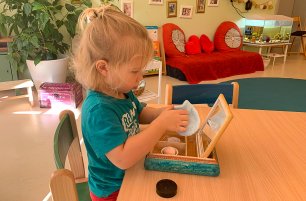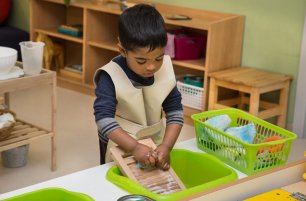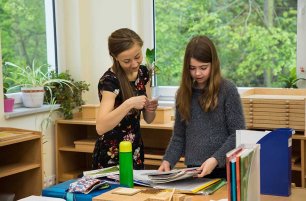Mentorship in our classrooms: Why Mixed Ages Work
Have you ever noticed the mixed-age classrooms in a Montessori school and wondered why? This is a specific design that allows younger children to benefit from having older peers as role models and mentors and enables older children to step into leadership roles. This model mirrors real-world experiences where people of different ages work together and learn from each other.
In our IMSP classrooms, older students relish and value the opportunity to be leaders, sometimes stepping into a teaching role. Mentoring their younger friends increases the independence and competence of the older students. This model is also beneficial to the younger children as they look to older students to be role models and helpers. They know that they can count on them for help and, because of this, they can accomplish tasks they may not be able to do independently yet.
As a whole, children can cooperate rather than compete, creating an environment of learners who support and care for each other. Check out this video to see Montessori mentorship in action!
Want to learn more? Read our next article:
